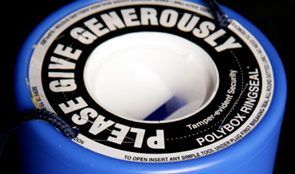 Last month’s report on Gift Aid and reliefs on donations from the National Audit Office raised this interesting question (press release here).
Last month’s report on Gift Aid and reliefs on donations from the National Audit Office raised this interesting question (press release here).
Gift Aid is an important source of income for charities – in 2012/13 about £1bn was paid in Gift Aid (about 2% of all chastity income) and £940m was provided as tax relief to individuals and companies on their donations.
But the Treasury and HMRC do not know whether these incentives, designed to increase charitable giving, have worked. They don’t know if people and companies give more as a result of these reliefs. This is a lack of evidence on two fronts:
1. there is insufficient evidence that government has actively encouraged take-up of the reliefs so that those charities which are entitled to them get the intended benefits
and
2. HMRC has not collected the data which would enable it to conclude how tax incentives since 2000 have affected donor behaviour or if they have increased the value of donations.
And the cost is not just the money handed to charities, it is also the cost of policing the system. Although teh number of charities set up to abuse the system is very small the cost is high (estimate £217m of tax is at risk 2012-13).
The conclusion is that “there is not enough evidence to conclude that reliefs on donations in their current form, and the way they are implemented, provide value for money.”
So does Gift Aid encourage people to give more? Maybe it encourages them to give less. What do you think? Do you have any evidence?
Are you claiming all the Gift Aid available to your charity? Are you using HMRC online Gift Aid submission? If your system doesn’t support this then have a look at GiftAider – free trial available.























 © 1990-2025 Systematic Marketing Ltd
© 1990-2025 Systematic Marketing Ltd